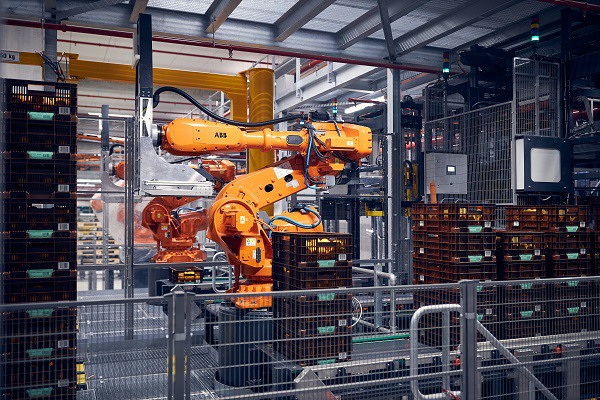SoftServe, Ultra, Coinweb, ConsenSys, DSCVR and XDC Foundation on blockchain misconceptions
We have the invention and development of technology to thank for some of humanity’s most important advances. The invention of the telephone in 1876, the airplane in 1903, the computer in 1937 and the internet in 1974 completely changed how we live our everyday lives. As technology advances, how can the likes of web3, metaverse, blockchain and DeFi change the future of fintech?
Continuing our focus on decentralized finance (DeFi), virtual assets and blockchain, The Fintech Times asked a number of industry experts what the most common misconceptions about blockchain are, and what unexpected use cases we might see come into play in the future.
“A key weapon in a financial institution’s armoury”
Esther Tapia is senior marketing manager for financial services in EMEA for SoftServe, the provider of financial and banking solutions. Tapia discusses how blockchain’s potential continues to grow, serving a wide range of businesses.

“Blockchain is becoming a key weapon in a financial institution’s arsenal to optimize costs, tighten security and improve efficiency, and is no longer just the gimmick spinoff from the crypto space that many originally positioned it to be.
“That’s not to say it’s suddenly become part of mainstream IT thinking or infrastructure, but it’s increasingly proving to be a valuable, flexible and highly practical technology that can support diverse business needs across the enterprise.
“By leveraging blockchain-ready infrastructure, banking and insurance IT innovators can now be ready to bring new business ideas through fast and secure validation in a blockchain sandbox, without disrupting existing IT systems. It can become a key instrument to effectively help to connecting the dots with business goals using the best available technology.
“A sandbox significantly reduces the price (and risk) of entry for testing new initiatives, enabling rapid, secure and cost-effective innovation. SoftServe’s blockchain sandbox not only serves our own needs, but helps our customers rapidly implement innovation and hypothesis validation.” The solution includes rapidly distributed blockchain-ready infrastructure; basic functionality for Ether, Hedera and Polygon and leverages a library of smart contracts to support a wide range of use cases, including instant payments, digital asset management, as well as crypto wallets and tokens.
“Regardless of the use case running in the sandbox when proven users can smoothly switch from the isolated environment without compromising security and with minimal additional effort. This helps companies meet long-term strategic goals while managing cost optimization pressures and other short-term priorities. »
“Poised to change how players experience games”
Nicolas Gilot is the founder and CEO of Ultra, the blockchain-enabled entertainment platform. Gilot explains how blockchain is usually associated solely with cryptocurrency, but how it could change the gaming landscape.

“The most widespread misconception about blockchain is that cryptocurrency is the only use case for blockchain. Although it was the first, the technology has evolved far beyond the encryption of a digital currency.
“One of the more promising and unexpected use cases for blockchain is related to gaming. This technology is set to change how players experience games and how they perceive games. Players can now truly own their in-game assets through tokenization: the process of making a digital file into an encrypted token.
“True ownership of game assets means that players are not limited to the computer system of the game they are playing, but now have access to a network of players who may well be interested in any assets you have obtained.”
“Blockchain is going to change the world”
Toby GilbertCEO and co-founder of Coinweb, discusses how blockchain technology can suffer due to an unfair bad reputation. Gilbert explains how blockchain technology can actually revolutionize the world we live in.

“Blockchain is going to change the world, put everything on the blockchain and all real assets will soon be tokenized are some misconceptions that are regularly spread around the market. Usually put out by projects that want to hype their tokens and gain traction, which in most cases lead to over-promising and massive under-delivery, further tarnishing the reputation of the space and making it significantly more difficult for legitimate projects to get the attention and support they need.
“The reality of the situation is that blockchain technology, while revolutionary in its ability to deliver trust and transparency by decentralizing processes, as well as the promise of automating cumbersome processes and creating direct value through tokenization, can actually be seen as an upgrade to existing technology ., legacy processes and systems.
“Unexpected use cases to demonstrate this include the ability to tokenize existing payment processes that are subject to expensive credit card processing. In this flow, users can be encouraged to purchase bundles of tokens (existing feature) that have intrinsic value as they are tradable (new feature) and the end user has final custody and ownership (new feature) to pay for a merchant’s services. The funds received from the user are held in yield-yielding accounts that offset high processing fees. This makes otherwise loss-making businesses profitable and encourages new innovative startups to build on blockchain.”
“Blockchain Could Introduce Proof of Provenance”
Marta Piekarskasenior DAO strategist at ConsenSysexplained her views on blockchain misconceptions and what a reality using blockchain technology really looks like:

“Blockchain is often seen as a panacea for every problem that has ever existed. On the other hand, it is also seen as a buzzword, a gimmick that over-promises and under-delivers. The reality is that it is a technology like any other and can used to improve efficiency and reduce the need for trust in systems. While this is a need that most industries have, the cost of switching is often too high compared to the gains made from the switch. I think the biggest and most interesting use case for blockchain is provable provenance.
“Our world is fully connected, quite digital, but the internet is missing a layer – a layer that allows us to prove the connection between data sent and what was received. If I send you an email – how do you know it’s the same email you’re receiving and someone hasn’t spoofed it? If you download new software, how do you know it’s the app that the developers put up?
“This need for trust is what leads to a lot of inefficiencies and lack of trust in supply chains (which means sending a thing from one place to another). Blockchain can solve that and introduce proof of provenance as a standard.”
“Blockchain’s most novel use cases lie in social media and community”
Rick Porter is the CEO and co-founder of DSCVRa decentralized social media network that enables users to maintain ownership over their content and social identities online.

“A common misconception about blockchain is that it is synonymous with cryptocurrency. While blockchain is indeed the underlying technology for many cryptocurrencies, it has many other potential use cases far beyond them – for example in supply chain management, digital identity verification, voting systems and more.
“Another misconception is that blockchain is completely anonymous and private. While it is true that transactions on a blockchain are pseudonymous, meaning that a user’s identity is not directly linked to their public address, it is still possible to trace transactions back to the source with certain techniques.
“Blockchain’s most emerging use cases lie in social media and communities. For example, decentralized social networks can use blockchains to allow communities to organize DAOs and participate in the economy of the social platform. Creators can build communities that can obtain resources from their members, or earn resources from traditional sources such as advertising, tips and brand deals These assets can even be distributed back to the most active community members Community around a variety of topics from commerce (community owned and operated eBay) and invest in entertainment and political action. Web2 platforms do not currently enable such direct social economic action.
“Many of these platforms, including DSCVR, have become popular in recent years as users want more control and financial participation for their communities than traditional social media platforms.”
Blockchain Use Cases ‘Can Make a Big Difference for Businesses’
Billy Sebellmanaging director at XDC Foundationalso commented on the wide range of blockchain use cases.

Sebell said: “The range of blockchain use cases that can make a big difference to businesses is so much wider than people think. Blockchain enables a new set of applications to be built on decentralized networks. These dApps provide cheap access to shared data as well as offers a variety of financial instruments that can be automated, such as NFTs and cryptocurrencies.
“NFTs can act as a unit of account or a representation of an object to be exchanged as a derivative on the blockchain network and automate the rules within the network’s smart contract. Blockchain technology ultimately allows the free exchange of value and data between a dApp’s users, as well as the ability to host without a central server to maintain the system.
“Think about the use cases that blockchain can do at the local level. For example, real estate tokenization is emerging as a more localized or regional use case. The cadastre has a tool that can make a big difference on the blockchain when it comes to costs for communities managing deeds and related disputes . In the past, someone could forge a deed because there was no immutable method of recording these transactions. So go to local offices, work with regional officials and look for ways to incorporate blockchain into the local municipalities. From there, you can take that model and build it across the country.”


